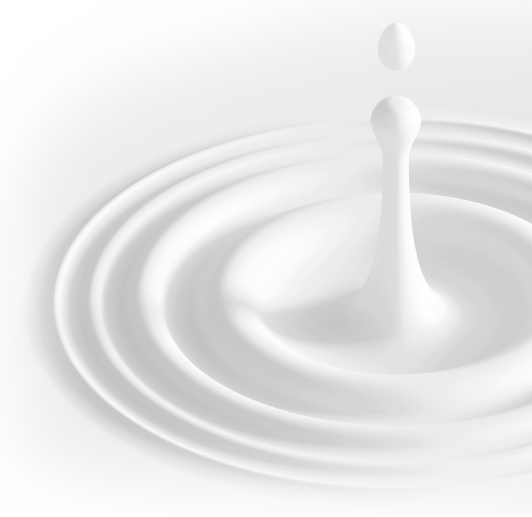On Monday, 20 September 2021, the second round of the SolvationScience@School project began in the ZEMOS building and the Alfried Krupp Student Laboratory. The successful premiere of the project was completed in July 2021 with the awarding of the prizes for the best submissions and the next round starts right away. The project aims to encourage and support students to write their Facharbeiten in chemistry. Schools can apply for funding and the best works will be rewarded with a certificate and prize money at the awarding ceremony at RUB. The scientists of the RESOLV Excellence Cluster support teachers in finding and implementing a Facharbeit on a current topic from the field of solvation science. This year’s motto: Solvation Science in Electrolysis!
"Without my chemistry teacher, I wouldn't have ended up in science".
Before students can experience cutting-edge research, it is the teachers' turn at the kick-off event. "It stands and falls with the commitment of the teachers," says one of the participating teachers. "Even if the students are interested in chemistry and the project, a Facharbeit must be supervised by a teacher.”
For this reason, chemistry teachers from all over NRW were invited to the information event at RUB to learn about the project, solvation science in general and this year's topic: Solvation Science in Electrolysis. The event started with a warm welcome by the organisers Prof. Dr. Katrin Sommer from the Chair of Didactics of Chemistry and Prof. Dr. Martina Havenith, spokesperson of the RESOLV Cluster. The following expert lecture by Prof. Dr. Ulf Peter Apfel demonstrated impressively how up-to-date the topic of hydrogen electrolysis is today, especially concerning environmental protection and Fridays for Future.
How can school experiments be successful?
After a little refreshment with coffee and cake, the participants went on to the Alfried Krupp Student Laboratory of the RUB. There, in a workshop to find a suitable topic, possible experiments were presented and it was discussed with the teachers how they could be implemented in the schools. Because what works for an expert in the lab does not necessarily work in a school. What exactly constitutes good experimentation? Is an expensive set-up necessary to get visible results? How do you show the students how to document an experiment and how a thesis statement and a result can then be generated? All these questions and more were discussed in the round, so that in the end not only the teachers were able to get input for the Facharbeiten, but also the experts were able to get new insights on how to improve the project.
With the new insights and ideas, the teachers can explore suitable topics with their students. The RESOLV scientists involved are always available to answer questions and solve problems during the active phase of the students’ projects. "We want to give the students a push, especially after this exhausting period of distance learning," explains Martina Havenith.
Learn more
------------------------------------------
Auftakt der zweiten Runde des Projekts: Solvation Science@School!
Am Montag, den 20 September 2021 wurde im ZEMOS Gebäude und dem Alfried Krupp Schülerlabor der Auftakt der neuen Runde des Schülerprojektes SolvationScience@School gestartet. Die erfolgreiche Premiere des Projekts im Jahr 2020 wurde erst im Juli 2021 mit der Preisverleihung/Event abgeschlossen und es geht direkt weiter. Mit dem Projekt sollen Schülerinnen und Schüler ermutigt und unterstützt werden ihre Facharbeit im Fach Chemie zu schreiben. Für die Schulen kann dafür eine Sachmittelunterstützung beantragt werden und die besten Facharbeiten werden auf dem Abschluss Event mit einer Urkunde und einem Preisgeld belohnt. Dafür unterstützen die Wissenschaftler und Wissenschaftlerinnen des Exzellenz Clusters RESOLV die Lehrenden bei der Themenfindung und Umsetzung einer Facharbeit mit einem jeweils aktuellen Thema aus der Solvatations Wissenschaft.
„Ohne meinen Chemie Lehrer wäre ich nicht in der Wissenschaft gelandet“
Doch bevor die Schülerinnen und Schüler Zugang zur Spitzenforschung ermöglicht werden kann, sind bei dem Auftaktevent erstmal die Lehrerinnen und Lehrer dran. „Es steht und fällt mit dem Engagement der Lehrer“, sagt eine der teilnehmenden Lehrerinnen. „Denn selbst wenn die Schülerinnen und Schüler Interesse an Chemie und an dem Projekt haben, eine Facharbeit muss eben auch betreut werden, und das von einem Lehrer.“
Desshalb sind zur Informationsveranstaltung Chemie Lehrer aus ganz NRW eingeladen worden, um sich in entspannter Atmosphäre über das Projekt, die Solvatationsforschung im allgemeinen und das diesjährige Thema: Solvation Science in der Elektrolyse zu informieren. Das Event startete mit einer Begrüßung der Organisatorinnen Frau Prof. Dr. Katrin Sommer vom Lehrstuhl für Didaktik der Chemie und Frau Prof. Dr. Martina Havenith, Sprecherin des RESOLV Clusters. Besonders anschaulich zeigte der folgende Expertenvortrag von Prof. Dr. U.-P. Apfel wie aktuell die Wasserstoffelektrolyse in der Heutigen Zeit, grade im Hinblick auf Umweltschutz und Fridays for Future ist.
Wie kann ein Experiment in der Schule gelingen?
Nach einer kleinen Stärkung mit Kaffee und Kuchen ging es für die Teilnehmenden weiter in das Alfried Krupp Schülerlabor der RUB. Dort wurde in einem Workshop zur Themenfindung, mögliche Experimente vorgestellt und mit den Lehrerinnen diskutiert, wie diese an den Schulen umgesetzt werden könnten. Denn was bei einem Experten im Labor funktioniert, funktioniert nicht unbedingt auch in der Schule. Was genau macht gutes Experimentieren aus? Ist ein teurer Aufbau notwendig um sichtbare Ergebnisse zu erhalten? Wie zeigt man den Schülerinnen und Schülern, wie man ein Experiment dokumentiert und wie daraus dann eine These und ein Ergebnis erzeugt werden kann? All diese und noch mehr Fragen wurden in der Runde besprochen, so dass am Ende nicht nur die Lehrerinnen und Lehrer Input für die Facharbeiten, sondern auch die Experten neue Einsichten zur Umsetzung des Projekts erhalten konnten.
Mit den neuen Einblicken und Ideen können sich die Lehrenden zusammen mit ihren Schülerinnen und Schülern zusammensetzten um passende Themen für die Facharbeiten auszuloten. Auch während der aktiven Phase der Facharbeiten haben die beteiligten RESOLV-Wissenschaftler bei Fragen und Problemen immer ein offenes Ohr. „Wir wollen den Schülerinnen und Schülern, grade nach dieser anstrengen Zeit des Distanzlernens, einen Push geben“, erklärt Martina Havenith.
Lies mehr






